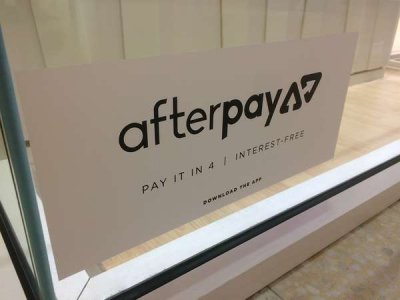Afterpay debuts 'delay and decide' scheme: Financial flexibility or folly?
- Replies 19
For many in the over-60s community, managing cash flow and keeping a tight rein on our budgets is crucial.
Afterpay, the popular Buy Now Pay Later (BNPL) service, has recently rolled out some significant changes to its Terms of Service that could have a considerable impact on how you manage your finances and shopping habits.
Afterpay's new options could provide that extra bit of breathing room we need when making purchases; however, as with any financial service, it's important to understand the implications and how to use these changes to our advantage.
In a move that's been described by experts as ‘sensible’, Afterpay is now offering select customers the ability to delay their first payment on eligible orders, as well as the flexibility to choose a preferred day of the week for their instalment payments.
The most eye-catching update is the option for some customers to delay their initial payment by up to two weeks.

‘The good news is that more customers will gain access to this benefit,’ Afterpay wrote in an email to its clients.
‘We can decide whether to grant you access.’
‘When deciding this, we take into account a range of factors, including how long you’ve been with Afterpay and your payment history.’
‘We may remove access if you’ve failed to make a payment on time or where we otherwise reasonably need to do so,’ it added.
However, there's a catch. Customers who are considered for delayed initial payments may need to undergo a credit check, according to Associate Professor Andrew Grant from the University of Sydney Business School.
‘In the case of “low risk” consumers—either identified through their credit history or a sequence of good payment history with Afterpay—providing them an option to shift the first payment by up to two weeks would be similar to other forms of credit,’ he said.
‘This is in contrast to, say, making the first 25 per cent of the payment at the time of purchase or order.’
‘So, potentially, there could be higher risk of ‘larger’ bad debts,” he said, such as “non-paying customers defaulting on 100 per cent of their purchase instead of 75 per cent of their purchase.’
‘But this could well be offset by an increasing customer base and by careful credit assessment,’ Professor Grant added.
Another change that could help with financial planning is the ability to schedule payments for a day that works best for you.
In the announcement Afterpay released, it stated this system would help customers ‘manage (their) finances more efficiently’.
If you don't select a preferred payment day, Afterpay will set one for you, which you can change if needed.
Professor Grant deemed this as a ‘sensible option’, ‘providing that consumers select the option to make their payment day on or soon after their payday’.
‘A large reason for missed payments—which incur dishonour fees as well as late fees—is due to mismatched pay cycles,’ he explained, highlighting that this can leave people short of funds before payday, especially when a payment is due.
According to Professor Grant, preferred payment days ‘will help to reduce the risk that Afterpay tries to collect payment via direct debit when the consumer is “just before” their payday’.
‘Smoothing of expenditure patterns is one of the valuable features of BNPL, and this should help for budgeting with customers,’ he added.
Amidst Afterpay's recent major changes to its service, including delayed initial payments and the option to choose a preferred payment day, shoppers have been left divided.
While some embrace the flexibility these changes offer, others express concerns about the potential risks associated with the popular buy now, pay later model.
In fact, there's been growing outrage among shoppers over the inclusion of buy now, pay later options at supermarkets.
Many argue that this trend needs to stop, fearing it could increase financial strain for vulnerable consumers.
 What are your thoughts on Afterpay's new changes? Do you see them as a helpful way to manage your finances, or do you prefer to stick to traditional payment methods? Share your thoughts and experiences with us in the comments below!
What are your thoughts on Afterpay's new changes? Do you see them as a helpful way to manage your finances, or do you prefer to stick to traditional payment methods? Share your thoughts and experiences with us in the comments below!
Afterpay, the popular Buy Now Pay Later (BNPL) service, has recently rolled out some significant changes to its Terms of Service that could have a considerable impact on how you manage your finances and shopping habits.
Afterpay's new options could provide that extra bit of breathing room we need when making purchases; however, as with any financial service, it's important to understand the implications and how to use these changes to our advantage.
In a move that's been described by experts as ‘sensible’, Afterpay is now offering select customers the ability to delay their first payment on eligible orders, as well as the flexibility to choose a preferred day of the week for their instalment payments.
The most eye-catching update is the option for some customers to delay their initial payment by up to two weeks.

Afterpay introduced a change that allows certain customers to delay their first payment by up to two weeks on eligible orders. Credits: Shutterstock
‘The good news is that more customers will gain access to this benefit,’ Afterpay wrote in an email to its clients.
‘We can decide whether to grant you access.’
‘When deciding this, we take into account a range of factors, including how long you’ve been with Afterpay and your payment history.’
‘We may remove access if you’ve failed to make a payment on time or where we otherwise reasonably need to do so,’ it added.
However, there's a catch. Customers who are considered for delayed initial payments may need to undergo a credit check, according to Associate Professor Andrew Grant from the University of Sydney Business School.
‘In the case of “low risk” consumers—either identified through their credit history or a sequence of good payment history with Afterpay—providing them an option to shift the first payment by up to two weeks would be similar to other forms of credit,’ he said.
‘This is in contrast to, say, making the first 25 per cent of the payment at the time of purchase or order.’
‘So, potentially, there could be higher risk of ‘larger’ bad debts,” he said, such as “non-paying customers defaulting on 100 per cent of their purchase instead of 75 per cent of their purchase.’
‘But this could well be offset by an increasing customer base and by careful credit assessment,’ Professor Grant added.
Another change that could help with financial planning is the ability to schedule payments for a day that works best for you.
In the announcement Afterpay released, it stated this system would help customers ‘manage (their) finances more efficiently’.
If you don't select a preferred payment day, Afterpay will set one for you, which you can change if needed.
Professor Grant deemed this as a ‘sensible option’, ‘providing that consumers select the option to make their payment day on or soon after their payday’.
‘A large reason for missed payments—which incur dishonour fees as well as late fees—is due to mismatched pay cycles,’ he explained, highlighting that this can leave people short of funds before payday, especially when a payment is due.
According to Professor Grant, preferred payment days ‘will help to reduce the risk that Afterpay tries to collect payment via direct debit when the consumer is “just before” their payday’.
‘Smoothing of expenditure patterns is one of the valuable features of BNPL, and this should help for budgeting with customers,’ he added.
Amidst Afterpay's recent major changes to its service, including delayed initial payments and the option to choose a preferred payment day, shoppers have been left divided.
While some embrace the flexibility these changes offer, others express concerns about the potential risks associated with the popular buy now, pay later model.
In fact, there's been growing outrage among shoppers over the inclusion of buy now, pay later options at supermarkets.
Many argue that this trend needs to stop, fearing it could increase financial strain for vulnerable consumers.
Key Takeaways
- Afterpay introduced changes allowing select customers to delay their first payment by up to two weeks on eligible orders.
- Customers can now choose a preferred day of the week for their afternoon payments, enabling better alignment with their personal cash flow.
- An expert described the changes as 'sensible' and beneficial for customers who manage their finances around payday.
- Afterpay's adjustments could potentially increase the risk of larger bad debts, but this may be mitigated by a growing customer base and careful credit assessments.







